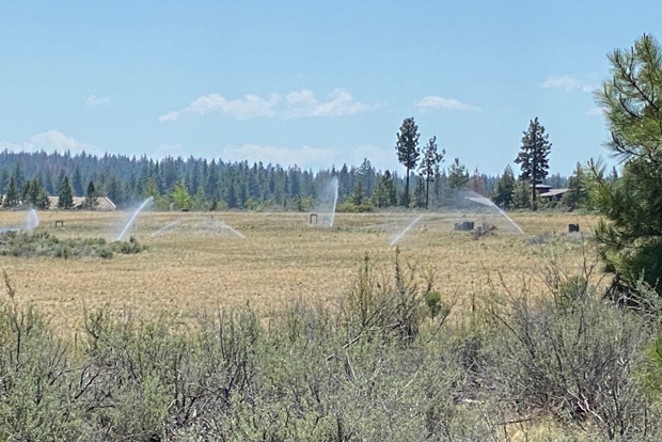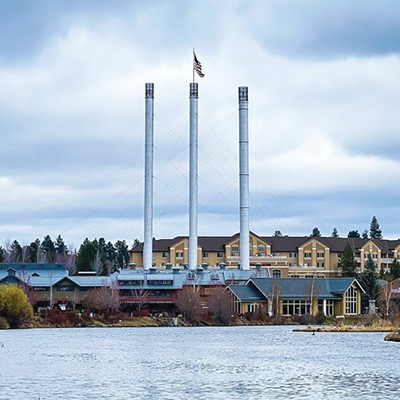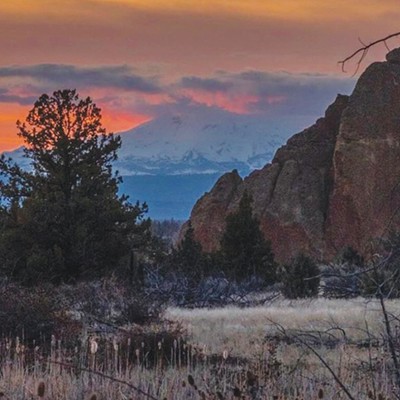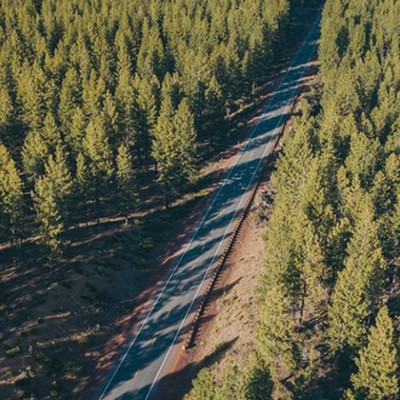Editor's note:
This week's themed issue takes on a topic that has many different "faucets"—Water. Determining how much water is placed into rivers (and reservoirs) versus how much is meted out for irrigation is a big topic in a drought year, so that's definitely included in our coverage this week. Recreating on local waterways is another popular topic—so it, too, gets some ink on our Feature pages. And finding new stores of water? That should be of interest to many—so it's also mentioned in this week's Feature. And just for good measure, we've included some info on Central Oregon's newest indoor aquatic center on page 25. Are there other things we're missing? Definitely. But we hope this small sampling of issues related to water gets your juices flowing, so to speak. I couldn't help the pun...
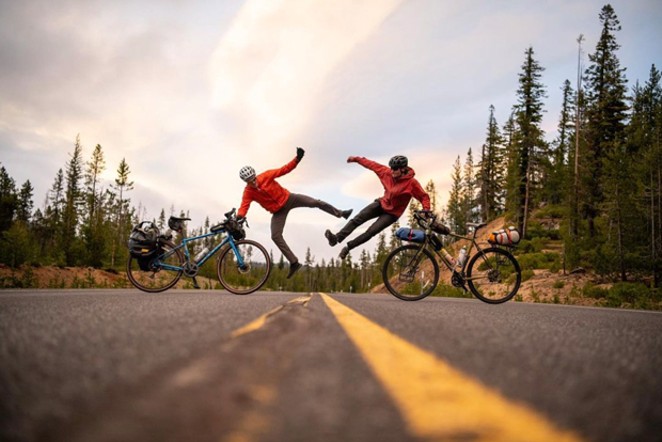
Guest Opinion: Use American Rescue Plan Dollars for the Housing Crisis
We live in a deep economic crisis that's devastating families across the nation. From lack of affordable housing, access to childcare and jobs with living wages, families are struggling to survive. This is not a new phenomenon; the pandemic has just made it much worse.The most critical issue is housing as it is the foundation for which we build our lives.
There is no excuse that in the richest country in the world we have so many of our neighbors, including children, living on the streets or in our forests in tents or vehicles, on the verge of that very situation, or spending so much of their income on rent or mortgage that they are barely keeping their head above the water.
Take my case, for example. I spent three of my five years in Oregon without a home, living in the national forest with my husband and two young kids who are now ages 11 and 9. We moved from Florida thinking the housing crisis may be better in the West, but it's worse. I was making $19 an hour before being laid off due to COVID and I still couldn't afford to rent in my community. The only reason we were able to obtain housing was because of the Rapid Rehousing and Housing Voucher programs, both of which are severely underfunded.
The time is now for legislators to act for Oregonians who are struggling during the pandemic and to provide relief by giving American Rescue Plan funds to agencies and direct services to get and keep people housed and provide access to childcare so parents can go back to work while their children are safe and getting the care they need.
Indeed, we need solutions and policies that assure all of us have a place to call home. That must be the American dream, embracing our values for a caring economy that uplifts families regardless of how much money they have or where they were born.
Over the last several decades, our country has underfunded and undermined federal housing programs for the most economically vulnerable. It is time for a transformative housing agenda that guarantees homes for all.
To recover beyond the pandemic families require transforming housing into a system that is equitable through bolder changes and longer-term investments. American Rescue Plan dollars must be used to get Oregonians a place to sleep, rest, share meals and live their lives. Let them feel the relief they have needed by helping secure housing in our communities and by helping our families.
Housing is critical community infrastructure that must be planned, operated and financed for public good. Let's invest in building, maintaining and preserving affordable housing. The need is dire now and will only continue to get worse. Like air to breathe and food to eat, safe, stable, affordable housing is a basic human need. Without it, folks are constantly living in survival mode and unable to focus on their other barriers to stability.
—Mandee Seeley is a member of Residents Organizing for Change, a statewide network of people committed to advocating for safe, stable and affordable housing for all Oregonians. She lives in Sisters.
On Water
Few people realize that the oceans currently provide 50-80% (NOAA) of the oxygen in our air. This comes from photosynthesis (e.g. cyanobacteria). The oceans are not healthy and their ability to produce oxygen has gone down due to dead zones. Dead zones (hypoxic) in the oceans have increased four-fold since the 1950s and 10-fold in coastal waterbodies. Dead zones are created from anthropogenic (human) activity such as sewage, fertilizers, industrial chemicals and plastics. Billions of people rely on food from the oceans, however, no food comes from the dead zones. Many fish species are at their lowest levels ever. Sustainability sounds good but rarely is effectual. To save our planet we need to save our oceans and other water sources. The Climate Change emphasis on reducing carbon is a red herring. Even John Kerry (Jan. 27, 2021) has stated that elimination of ALL carbon produced in the USA will have NO effect on climate change. This has been proven mathematically by others (e.g. The Cato Institute). The trillions of dollars to be spent on reducing carbon would be better spent on cleaning up our oceans and our sources of water for human use.—Quentin Jauquet
Central OR Drought?
Would love to understand why, when we as a collective community know, or should know by now, that there is a severe water shortage in Central OR, why residential, non-farm, non- productive grazing fields are being watered on a daily basis. The attached photo is just a sample of The Highlands here in Bend, watering massive fields of nothing; no cattle graze these fields, no crops are grown, and there isn't even any landscaping (which begs another question as to justification for watering)?! These fields have been watered for years, such a waste. We would love to see some investigative reporting on why, and how to put an end to it!—Brian Dumais
Letter of the Week:
Brian: A very good question. Thanks for writing in—come on by for your gift card to Palate!
—Nicole Vulcan

